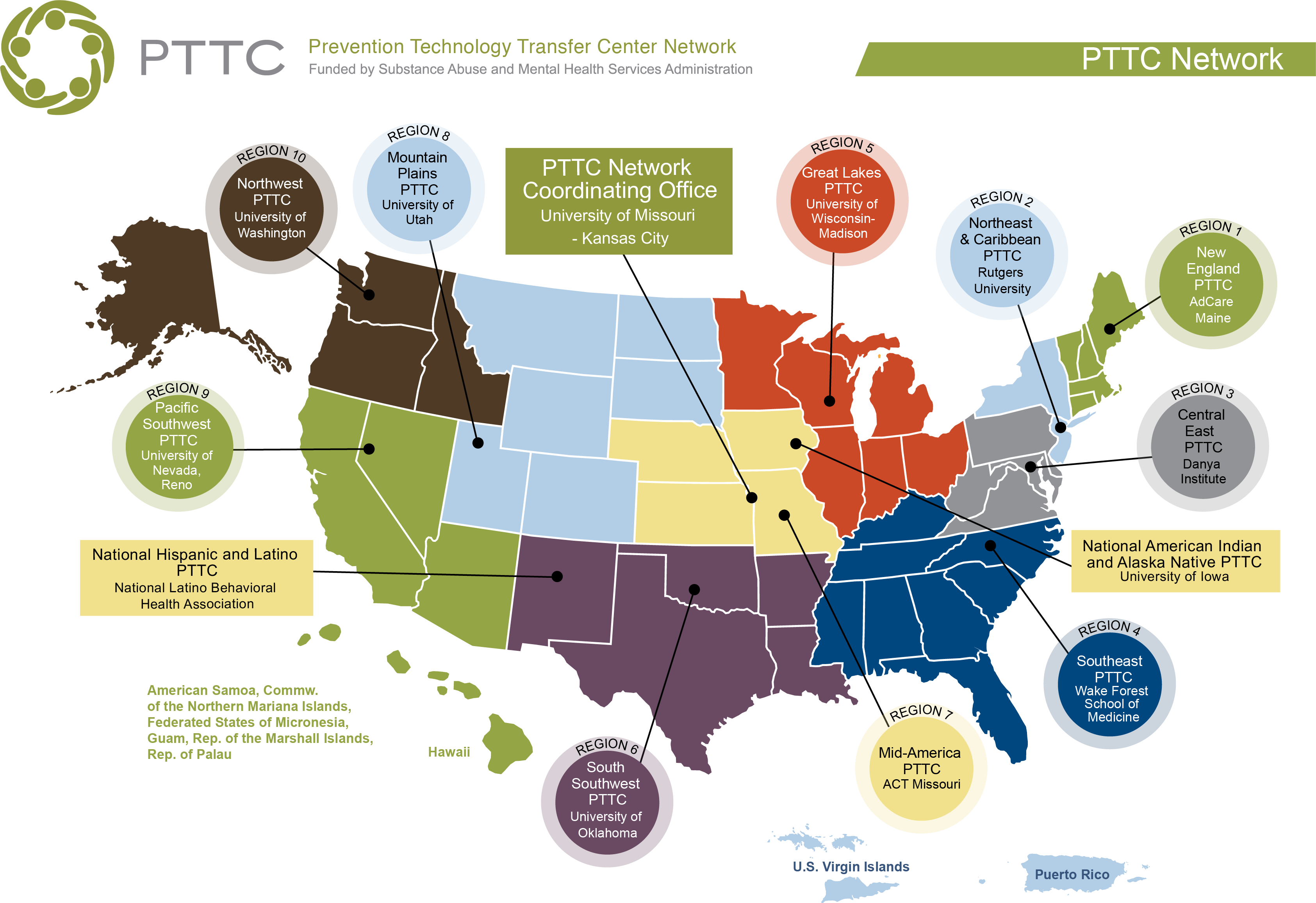Home > PTTC Post Article - June 2019

Welcome to the inaugural issue of the Prevention Technology Transfer Center (PTTC) Network newsletter, PTTC Post. In this issue, we highlight the PTTC Network Coordinating Office (Network Office) located at the University of Missouri – Kansas City (UMKC). Network Office Co-Directors Laurie Krom, MS, and Holly Hagle, PhD, were interviewed to share their insights.
The PTTC Network launched in September 2018. Building off the success of the SAMHSA-funded Addiction Technology Transfer Center (ATTC) Network, the PTTC Network will improve implementation and delivery of effective substance use prevention interventions, and provide training and technical assistance services to the substance use prevention field. PTTCs will develop and disseminate tools and strategies needed to improve the quality of substance use prevention efforts; provide intensive technical assistance and learning resources to prevention professionals in order to improve their understanding of prevention science, epidemiological data, and implementation of evidence-based and promising practices; and, develop tools and resources to engage the next generation of prevention professionals. The Network is composed of 10 Regional Centers, two National Focus Area Centers, and a Network Coordinating Office. Together, the Network serves all 50 U.S. states; the District of Columbia; Puerto Rico; the U.S. Virgin Islands; and the Pacific Islands of Guam, American Samoa, Palau, the Marshall Islands, Micronesia, and the Mariana Islands.
The PTTC Network Coordinating Office plays a key role in bringing together all independently funded PTTCs into a strong, collaborative Network. To do this, UMKC has partnered with the National Association of State Alcohol and Drug Abuse Director’s (NASADAD) National Prevention Network (NPN) and Applied Prevention Science International (APSI). Collaboration with strong partners is [1] imperative for achieving PTTC Network Office goals, and is based on the following three-prong approach: UMKC provides network development and technology transfer expertise; NASADAD brings policy expertise and access to the National Prevention Network; and Dr. Zili Sloboda, one of the founders of the Society for Prevention Research (SPR) and President of Applied Prevention International, ensures that content and activities are founded in prevention science.
The PTTC Network Office is committed to developing and enhancing strategic alliances among culturally diverse practitioners, researchers, policy makers, and community leaders. Working toward this goal, the Network Office has established a robust Advisory Board that includes:
The PTTC Network Office will also support collaborative efforts between and among the PTTCs through a variety of intra-Network working groups. PTTCs indicated their areas of expertise in the funding application process. The Network Office analyzed the PTTC work plans and engaged an expert facilitator to leverage this information to create actionable initiatives, resulting in the formation of seven working groups: Marijuana Risk, Data-Informed Decisions, Evidence-Based Interventions (EBIs), Community Coalitions and Collaborators, Opioid Education, Trauma and Drug Exposed Children, Addressing Culturally and Linguistically Appropriate Practices. These working groups will begin meeting in June 2019, and we are excited to see the science-based resources and activities they will develop in the upcoming years.
The PTTC Network is an unprecedented opportunity to transform the dissemination of evidence-based prevention programs throughout the United States. UMKC and the rest of the PTTC Network Coordinating Office partners are excited to be part of this effort and look forward to the positive impacts on the health and wellness of Americans that it will advance.